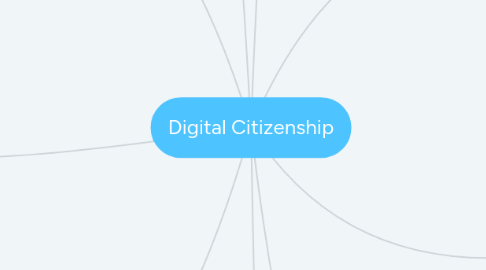
1. Access
1.1. Map Of The World
1.1.1. Students will adopt the persona of a country of the world and will answer questions pertaining to each place to compare access to technology in each area.
1.1.1.1. Which countries have the most access to technology?
1.1.1.2. Does the countries wealth have anything to do with the connections?
1.1.1.3. Is there a connection between population and access?
1.2. BOYD - Bring Your Own Device
1.2.1. Students will explore different types of devices and which places in the world have access to what type of device.
1.2.1.1. Which countries have access to the most modern devices?
1.2.1.2. Are 1:1 devices in school common in other parts of the world?
1.2.1.3. What kinds of devices are available in third world countries?
2. Security
2.1. Who Can I Trust?
2.1.1. Students will create profiles and passwords and will explore who they can trust with their personal information and social media security.
2.1.1.1. Is it a good idea to share your password with others?
2.1.1.2. Should you share all of your information in your social media profile?
2.1.1.3. Is lying in your profile a good alternative to oversharing?
2.2. How Can I Protect My Files?
2.2.1. Students will learn that profiles are not the only thing they need to protect on their computers.
2.2.1.1. Who can access files on my computer?
2.2.1.2. What is encryption?
2.2.1.3. Why do I need to protect my files?
3. Health & Wellness
3.1. How Much Is Too Much?
3.1.1. Students will explore topics such as addiction, technology use and alternatives.
3.1.1.1. Is there a preferable time to spend on technology?
3.1.1.2. How do you know if you spend too much time on social media?
3.1.1.3. What could you be doing to reduce your time using technology?
3.2. Mental Health and Technology
3.2.1. Students will explore the effects that technology can have on a persons mental health.
3.2.1.1. Do the effects of technology change the way I feel about myself?
3.2.1.2. Is technology isolating me from others?
3.2.1.3. What resources are available to help me?
4. Communication
4.1. Friend Me - Do You Really Know Who's Behind The Screen
4.1.1. Students will experiment with create false profiles and the ease with which an identity can be falsified online. Other topics will include what information to share and how to gauge your trust in another.
4.1.1.1. How do I know if a person is who they say they are?
4.1.1.2. How much information should I share?
4.1.1.3. Who can I ask for help when I'm unsure?
4.2. Gaming - More Than Just Fun and Games
4.2.1. Students will look in to how gaming can be used in a variety of ways.
4.2.1.1. Do I communicate with others through games?
4.2.1.2. Why do people communicate through games?
4.2.1.3. What are the risks and benefits of communicating through games?
5. Etiquette
5.1. Is "What's On Your Mind" appropriate?
5.1.1. Students will evaluate the positives and negatives that arise from posts on the internet. Topics will include who the posts will reach and how postings last on the internet.
5.1.1.1. How much should I post on the internet?
5.1.1.2. What is appropriate to post?
5.1.1.3. Who can see my posts?
5.2. How Can I Make My Message Clear?
5.2.1. Students will look in to the language they use when conversing or creating content online.
5.2.1.1. Am I being rude?
5.2.1.2. Could my tone convey something my message isn't?
5.2.1.3. Should I choose another way to communicate?
6. Literacy
6.1. What Should I Trust?
6.1.1. Students will explore the idea that not all sources are created equal and how to recognize a credible resource.
6.1.1.1. What makes a source trustworthy?
6.1.1.2. How can I tell between reliable and unreliable sources?
6.1.1.3. Why do I need to use credible sources in my work?
6.2. Creating Content
6.2.1. Students will explore the different types of content which can be created online.
6.2.1.1. Which type of content is appropriate for what I have to say?
6.2.1.2. Who is my audience?
6.2.1.3. Have I edited my content before publishing?
7. Commerce
7.1. What Do Your Online Searches Say About You?
7.1.1. Students will begin the journey into online tracking and data collection which will be needed in future years.
7.1.1.1. How often do I conduct product searches online?
7.1.1.2. Have you ever noticed product searches cropping up as ads?
7.1.1.3. Why do companies track our searches?
7.2. Should You Buy Online?
7.2.1. Students will explore the world of online shopping and look at pros and cons.
7.2.1.1. Who is actually selling this product?
7.2.1.2. Could this be a scam?
7.2.1.3. Should I buy products online?
8. Rights & Responsibilities
8.1. What To Do When You See Cyberbullying
8.1.1. Students will learn how to recognize a cyberbully and what to do when they, or a friend, are confronted by one.
8.1.1.1. What constitutes a cyberbully?
8.1.1.2. What do you do when confronted by a cyberbully?
8.1.1.3. Should I ignore a cyberbully if they aren't bothering me?
8.2. Can Your Screen Protect You?
8.2.1. Students will explore the concept that a computer screen is not a shield to hide behind and their online choices have consequences.
8.2.1.1. Should my behavior change just because I'm behind a screen?
8.2.1.2. Am I the same person online and offline?
8.2.1.3. Am I responsible for what I say/do online?
9. Law
9.1. What Is Copyright?
9.1.1. Students will explore what copyright is and why it is necessary.
9.1.1.1. Why do people copyright things?
9.1.1.2. Why can't we use things under copyright?
9.1.1.3. Can we change things to avoid copyright laws?
9.2. Piracy VS Paying
9.2.1. Students will define piracy and learn why it is important to pay for content.
9.2.1.1. What is piracy?
9.2.1.2. Can I download content for free?
9.2.1.3. Who suffers from my choices?

